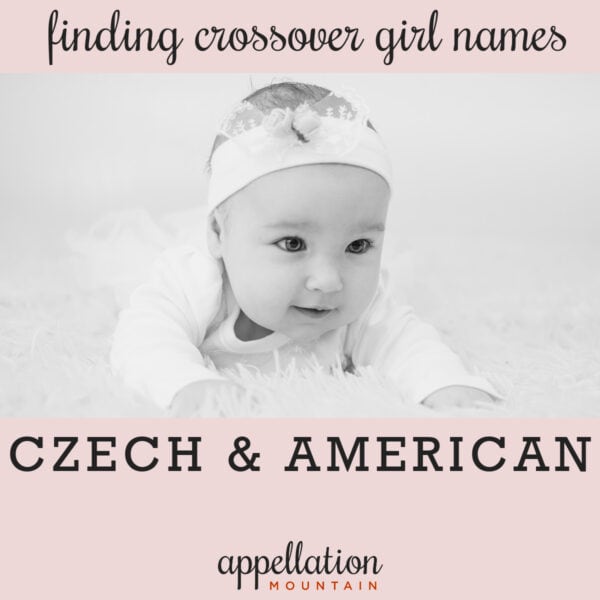The life of a princess has always been a tough one – even in antiquity.
Thanks to Paul for suggesting the sacrificial Iphigenia as Name of the Day.
Back in the day, King Agamemnon ticked off Artemis by hunting in her sacred grove. The only way to get back in the goddess’ good graces? Human sacrifice, of course. No mere human would do, either – it had to be Iphigenia, the King’s daughter. (Suddenly, politically-motivated marriages don’t seem nearly as cruel.)
Some stories say Dad went through with the deed. Others claim Artemis was satisfied with his intent, and allowed the princess to be magically transported to safety at the last second. (Shades of the Biblical Isaac!) And still others say that the story of Iphigenia’s escape was a tale told to appease her distraught mother.
You might see the name’s meaning given as royal born or wellborn. The second bit – genes – means born. The first half comes from iphios – strong.
While Iphigenia is a true rarity, never appearing in the US Top 1000, there are plenty of variants over the centuries. The Greek would’ve been closer to Iphigeneia. Other records call her Iphimede or Iphimedeia. Homer called her Iphianassa.
Euripides embraced the idea that the princess made good her escape, and continued the story of her life in a pair of tragedies; Homer mentions her in The Iliad.
In the fourteenth century, Giovanni Boccaccio’s Decameron included a tale of another beautiful Iphigenia. A ne’er do well named Cymon fell for Iphigenia and reformed his ways to win her hand. Boccaccio’s tale inspired many a painting, as well as the poet John Dryden’s seventeenth century Cymon and Iphigenia.
But it was the original bearer of the name who inspired most of the uses, including:
- Jean Racine’s play Iphigenia in Aulis, from 1674;
- Christoph Gluck’s opera Iphigénie en Aulide, based on Racine’s work, debuting one hundred years later in 1774;
- Richard Wagner’s revision and re-scoring of Gluck’s opera, in 1847;
- Johann Wolfgang von Goethe was also inspired by the play, writing his own version in the late eighteenth century;
- As recently as 1977, a Greek movie retold the story – and nabbed an Oscar nomination for Best Foreign Language Film, as well as a nomination for the Palme d’Or at Cannes.
There have also been at least one ballet, countless paintings and more. Iphigenia’s story is an enduring one.
The five-syllable pronunciation isn’t exactly straightforward. I’ve always favored if idj en EYE a or if idg eh NY ah. Less accessible to English speakers are EE fee hen EE ah and EYE feh heh NY ah. The French Iphigenie is closer to eh fih GEH nee or eh fidj EH nee.
A few nickname options could make her more wearable. A minor Battlestar Galactica answered to the short form Iphi; Genie and Gigi are possible, too, and Phidge – rhymes with Midge – could work.
But I’ll admit that much as I love her sound, I would be more than a little bit startled to hearing a little girl named Iphigenia calling for her Dad.




I like this spelling Iphigeneia, it seems to make the name phonetically easier to say for people. With that said, my husband said that he liked Iphigenia and Sophronia, that they would be great twins names for girls. Both have great history and literary cred. and it reflects his interest in Lit, he majored in English. I’ve contemplated his suggestion, but there other names I like just as much. It is a big name to wear. Gidge, would make a great nickname, with its 60’s vibe and retro seems to be the it thing coming back into fashion. Why not in baby nicknames as well? Ina would make a more solid, simple, button down nickname choice, though it does take all that frilly-glam and punch out of the original name.
Gidge and Phronie would make great sisters now that I’m thinking about it.
I think Iphigenia is quite wearable, especially with the nickname options of Iffy and Genie. It has a pretty regal sound. I’d never use it myself, but it would be exciting to meet one.
I think Iphigenia is pretty, but boy is that a big name to stick on a little person.
Iphigenie, might be more accessible.
Thank you, Rhiannon! I can’t quite figure out where I found the pronunciation I like so much, but I did find it listed elsewhere. (Then again, mistakes tend to echo on the internet, so my see-it-three-places, confirm-your-instinct rule tends to fail me with these things.)
I didn’t mention this in my post, but many years ago, my sister announced that this would be the name of her daughter, should she ever have one. I need to remind her of that …
I don’t think my last comment was totally clear: to figure out the accent on a Greek word, you start from the last syllable and move it towards the front of the word/name as many as three spots, unless it is stopped by aforementioned long vowel or diphthong. (I hope that’s clearer!)
I was curious and just looked it up in my Greek dictionary–it confirms the accent was on the ‘gen’ syllable.
Oops, somehow I managed to post under two different names–I’m also the Peony above.
If my classical Greek training has stuck with me, I believe a more correct (Anglicized) pronunciation would be –if eh JEEN ee ah.– Unless stopped by a long vowel or diphthong, the accent goes as far forward as it can to the third-from-last spot–like Hermione, Persephone, and Olympia. (With the latter, you wouldn’t say Oh-lim-PEE-a, see?)
That said, I love this name! I can see it as an eccentric middle name.